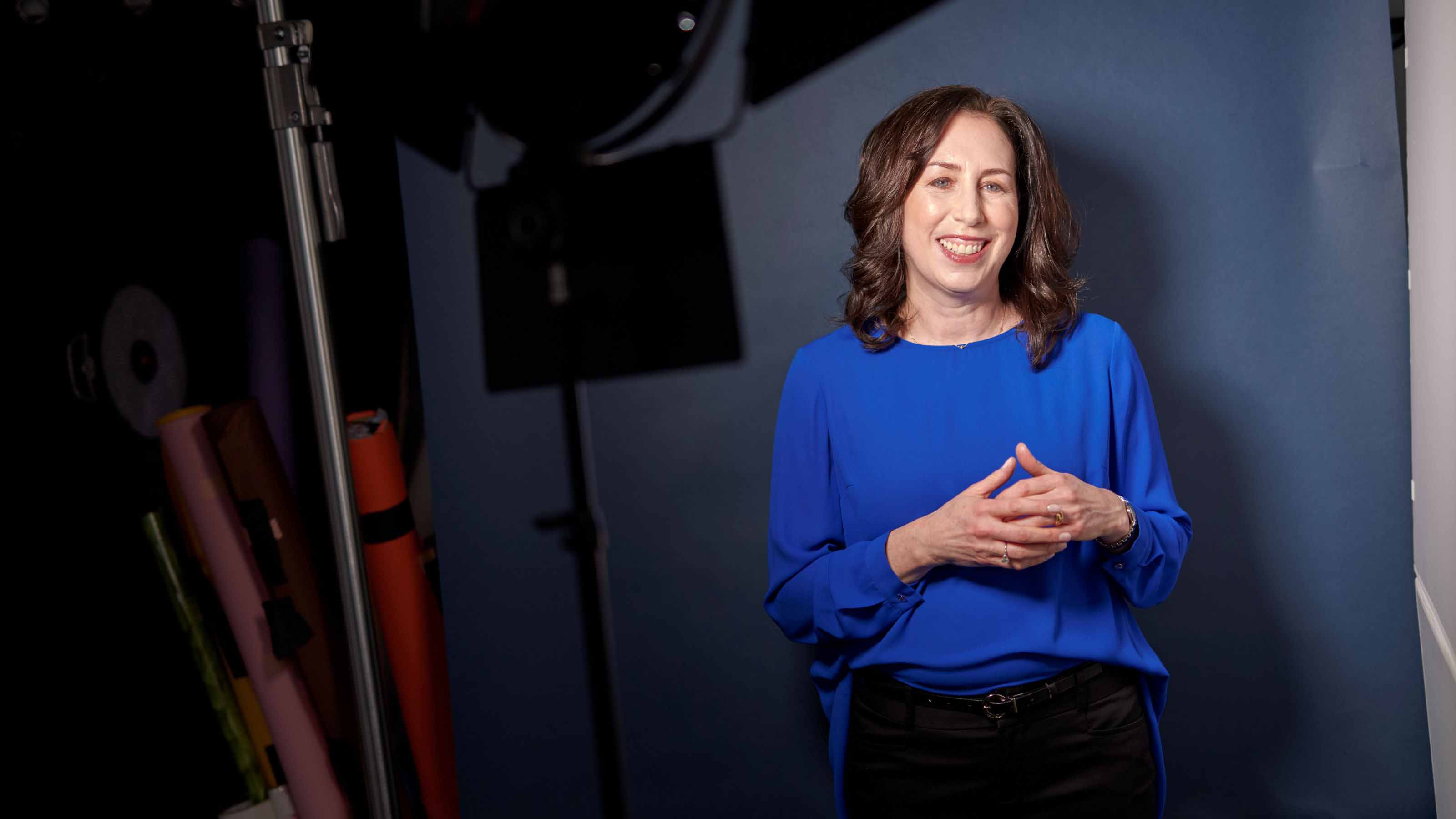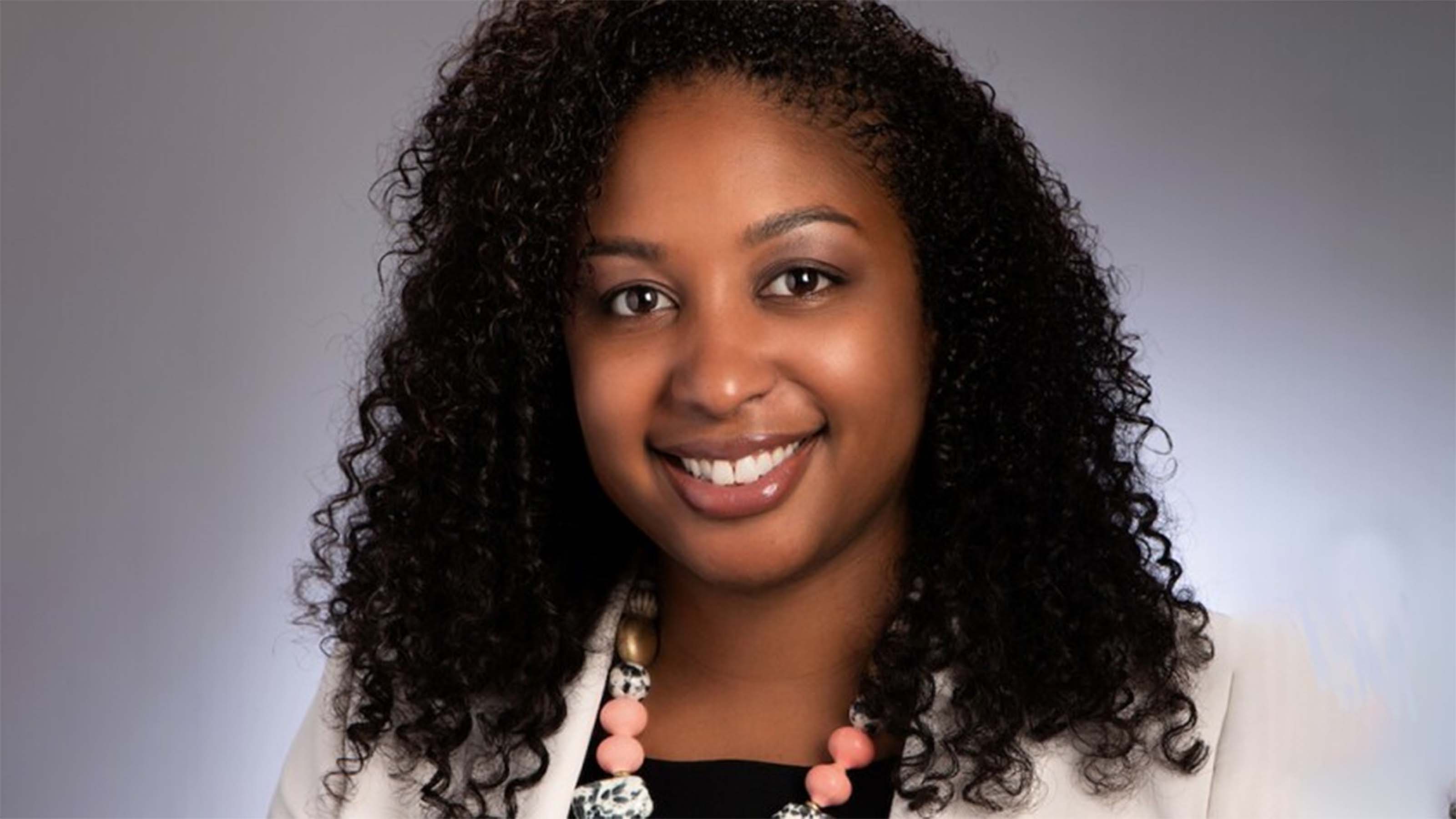How COVID-19 Is Changing the Way Families Save for College Costs
CollegeFinance.com's Kevin Walker joins our Your Money's Worth podcast to discuss how the global health pandemic is impacting the way families plan and save for college. Also, our hosts Sandy Block and Ryan Ermey chat about tax refunds and paying for a home in retirement.

Profit and prosper with the best of Kiplinger's advice on investing, taxes, retirement, personal finance and much more. Delivered daily. Enter your email in the box and click Sign Me Up.
You are now subscribed
Your newsletter sign-up was successful
Want to add more newsletters?

Delivered daily
Kiplinger Today
Profit and prosper with the best of Kiplinger's advice on investing, taxes, retirement, personal finance and much more delivered daily. Smart money moves start here.

Sent five days a week
Kiplinger A Step Ahead
Get practical help to make better financial decisions in your everyday life, from spending to savings on top deals.

Delivered daily
Kiplinger Closing Bell
Get today's biggest financial and investing headlines delivered to your inbox every day the U.S. stock market is open.

Sent twice a week
Kiplinger Adviser Intel
Financial pros across the country share best practices and fresh tactics to preserve and grow your wealth.

Delivered weekly
Kiplinger Tax Tips
Trim your federal and state tax bills with practical tax-planning and tax-cutting strategies.

Sent twice a week
Kiplinger Retirement Tips
Your twice-a-week guide to planning and enjoying a financially secure and richly rewarding retirement

Sent bimonthly.
Kiplinger Adviser Angle
Insights for advisers, wealth managers and other financial professionals.

Sent twice a week
Kiplinger Investing Weekly
Your twice-a-week roundup of promising stocks, funds, companies and industries you should consider, ones you should avoid, and why.

Sent weekly for six weeks
Kiplinger Invest for Retirement
Your step-by-step six-part series on how to invest for retirement, from devising a successful strategy to exactly which investments to choose.
Ryan Ermey: With the fall semester fast approaching, the COVID-19 pandemic has cast a shadow of uncertainty over higher education. Kevin Walker of CollegeFinance.com joins us for a discussion of how the landscape has changed for colleges, students, and parents alike in our main segment. On today's show, Sandy and I talk tax refund delays and answer reader mail about how to pay for a new home in retirement. That's all ahead on this episode of Your Money's Worth. Stick around.
- Episode Length: 00:29:27
- Listen to previous Your Money's Worth episodes
- SUBSCRIBE: Apple Google Play Spotify Overcast RSS
Ryan Ermey: Welcome to Your Money's Worth. I'm Kiplinger's associate editor Ryan Ermey joined as always by senior editor Sandy Block. And we're talking tax refunds here in the first segment, Sandy. My question to you to kick things off is did you get your refund?
Sandy Block: I owed the IRS. So to me, this is a nice problem to have. But here's the deal, the deadline for filing your 2019 tax return, as we mentioned many times, was last week. But some people who filed a long time ago still haven't gotten their refunds and we're not just talking about people who filed paper returns. If you file a paper return, it's kind of baked in the cake that you're going to get your refund late. But some people who filed electronically are also still waiting for their refunds -- and obviously they're very annoyed about that. And it's a little perplexing because when you file for your tax return and ask for a direct deposit electronic refund, that should be done electronically. So the fact that a lot of IRS people have been out because of the pandemic doesn't necessarily explain why the good people who e-filed and arranged for direct deposit of their tax refunds have not seen their money.
From just $107.88 $24.99 for Kiplinger Personal Finance
Become a smarter, better informed investor. Subscribe from just $107.88 $24.99, plus get up to 4 Special Issues

Sign up for Kiplinger’s Free Newsletters
Profit and prosper with the best of expert advice on investing, taxes, retirement, personal finance and more - straight to your e-mail.
Profit and prosper with the best of expert advice - straight to your e-mail.
Sandy Block: So hat tip to Howard Gleckman of the Tax Policy Center for writing about this recently. He had basically gave two reasons. One is that sometimes there is a problem with your tax return. Maybe it's a small thing, but it might need a human sign off. And those humans are very, very busy right now-
Ryan Ermey: Right, and there's fewer of them.
Sandy Block: Right. I think the IRS has staffed back up, but that's still-
Ryan Ermey: What do I know.
Sandy Block: No, you know a lot. But there's still a backlog. Even if they're fully staffed now, they weren't at full staff a couple months ago. So that's one, and the other -- this is kind of interesting because we've talked so much on this show about stimulus checks and will talk about them again if there are more -- is that both the refunds and the stimulus payments were distributed by Treasury's Bureau of Fiscal Service. And the Government Accountability Office found that the agency has limited ability to send tax-related payments. So it seems like maybe refunds took a second place to the far bigger task of making those stimulus payments, and that could've slowed things down, too.
Sandy Block: Now if you haven't gotten your refund, you can go to IRS.gov and there's a Where's My Refund tool that will let you check on the status of your refund through the IRS website. If you filed last week, you can check the status. You can check it now because after 24 hours after filing is when you can check the status of an e-filed direct deposit refund. If you mailed your tax return, well, your check is in the mail and it's going to be a while before you get it.
Ryan Ermey: Yeah. I got my refund. I had to schedule things around, because I always owe the IRS, but D.C. owes me a refund. And I try to calibrate it so that those numbers are pretty similar. One year I got it within a dollar.
Sandy Block: Brilliant.
Ryan Ermey: I owed a net dollar. But, yeah, we don't have too much advice here except wait and see. Definitely go to the IRS's site to check out the Where's My Refund tool. You can also access it on the IRS to Go mobile app.
Sandy Block: Right.
Ryan Ermey: A tax maven even like yourself, Sandy, I imagine even you don't have the IRS to Go mobile-
Sandy Block: I don't have it on my phone.
Ryan Ermey: ... app.
Sandy Block: No, I don't. But there's one other piece of advice I'd like to throw out there, and that is arrange it so you don't get a refund next year. I have been reporting on glitches and people getting refunds for as long as I've been writing about taxes. There's always something. There was a government shutdown. There was something else, some problem. And it just goes to show the downside of giving the government an interest-free loan. If you adjust your withholding so basically you're not giving away your money. That you're giving yourself a raise and keeping that money, then you're not sitting around going to Where's My Refund and swearing at the IRS, because you didn't get your money. You already have it. So I think these kinds of problems really point up the downside to using your refund as an automatic way to save. We've got tools. Go to your W-4 and fix your withholding and get that money now, and then this time next year you won't be wondering why your refund has not arrived.
Ryan Ermey: I ended up taking 15 exemptions or whatever because I get a big refund from D.C., because my rent is catastrophically high. So they give me some money back every year. And it's nice. You hit the nail on the head -- and my dad says it the exact same way. "I'm not going to give the government a loan." So yeah, it's good to owe them money. Plus you don't want to owe them so much money that you can't manage for it. But if you do it right, try to owe nothing or try to get it to zero.
Sandy Block: A modest refund. If it's a couple hundred bucks, you're not going to be sweating it out. The average refund is over $3000. That's a lot of money-
Ryan Ermey: That's crazy.
Sandy Block: ... for a lot of people. Keep that money, people. Keep it.
Ryan Ermey: There you have it.
Ryan Ermey: Has the pandemic thrown you or your child's college plans for a loop? Kevin Walker joins us for a conversation on how folks can cope next.
Ryan Ermey: We are back, and we're here with Kevin Walker. He is the founder and publisher of CollegeFinance.com. And we're talking about what the picture of higher education is going to look like this fall and going forward in the wake of the COVID-19 pandemic. Kevin, thank you so much for coming on.
Kevin Walker: My pleasure.
Ryan Ermey: So let's start with the $64,000 question, will colleges be open this fall, semi-open, online only? What will things look like, and how should families factor that into their decision making?
Kevin Walker: Oh, they'll be open because colleges are businesses at the end of the day and they need their revenue from tuition. So one way or the other, they will be open. I've actually heard of no schools that are completely pausing for the semester as results of the virus. So there's a lot of motivation at every school to be open.
Kevin Walker: I think the model that schools will be following will be all across the board from fully online with the recent example of Harvard's announcement to conduct the semester that way, to be fully residential. There's a lot of schools hoping that that model will work out for them. And then there's examples in between where some years of college, maybe sophomores and juniors or freshmen and seniors will come to campus, but the other classes will stay at home and conduct their studies online. Or everybody will be on campus, but they'll be taking courses online or some of their courses online. So it's a very mixed bag of what college students will be experiencing this fall. I think the name of the game is just flexibility. People have to be ready to make it work, whether that's a college official trying to make it work or a student who's decided to enroll, stay enrolled. They've got to do everything they can to just roll with the punches and make it work.
Sandy Block: So, Kevin, you mentioned Harvard -- and Harvard got some pretty big headlines for announcing that it was going online only, but not lowering the sticker price. Now I know if I got into Harvard, I wouldn't imagine that I'd be attending classes from my bedroom. If you're already committed to a school, but don't think you're getting the full bang for your buck, do you have options to lower the cost?
Kevin Walker: I mean, I think you definitely have options. I can't speak of course for what Harvard would say to this, but it doesn't hurt if a family really believes that this model of learning is not going to be worth the expense and that either the student thinks or the family thinks that "Hey, my son or daughter or the student can wait a second or wait a year to begin," it does not hurt to ask the school if that's a possibility. I don't think the schools want that because it screws up their business model and the balancing of their enrollment in years to come. But it doesn't hurt to explore that if the family or the student feels strongly that they don't want to spend the money and even beyond the money, just have a semester or a year's worth of experience in college be something less than what they'd always imagined. So, again, I think if a family feels strongly about that, it doesn't hurt to ask if it's possible to defer. So that's one extreme you could explore.
Kevin Walker: The other would be to consider to approach the school and ask if there's anything they can do to either... you could phrase it as lowering tuition because the experience is going to be online or not optimal. But probably the better way to approach that would be to ask the school to take another look at the family's financial aid package and appeal to their sense of what the family might be going through and the economy as well with either a job loss or the prospect of a job loss or the prospect of no bonus if the family was counting on Mom or Dad making a bonus as part of their typical income. I think these are legitimate questions that give a credible reason to challenge a financial aid award or to ask the school for a second look on financial aid.
Kevin Walker: And I've heard that schools are, and I think all schools it makes sense, they're willing to hear the family out. It doesn't mean that they'll always find more money, but they also want to do everything they can to maintain their enrollment this year and not encourage families probably to take that extreme that I started with, which is exploring the idea of taking the full year off. I think schools are really motivated to try to get people to be enrolled one way or another this fall. So I would say, and I'm a college parent of two college kids and actually have done this myself. In one case with some success, and the other case with no success. But it does not hurt to ask for more financial aid. Worst case they'll say no. They're not going to kick you out of school just because you ask. So please anybody should do that, especially in this environment.
Ryan Ermey: A lot of students are understandably considering a gap year. They're not going to get all of the college things that they were necessarily hoping to get. But what are the possible ramifications? I guess there's two sides of this coin. One is for kids who maybe already took out loans and could that effect things down the line for them at their school? And the other is the kids who are already planning on taking a gap year to go to Australia or whatever, and now it's like traveling isn't quite what it used to be.
Kevin Walker: Yeah. You're right. I think the problem with a gap year is that typically what a young person does during that year is they travel, they work or they enroll in some kind of program, maybe it's a charitable volunteer program or something like that. And all three of those typical pastimes during a gap year are challenged at best this year. So travel, as you suggested, is restricted. I mean, some countries you just can't go to. You probably have reasons not to want to go to some places just to not expose yourself or others to the virus. Work for a young person, the types of work that people typically would've pursued during a gap year, whether that's working at a restaurant or in some kind of hospitality environment, those jobs are going to be obviously hard to come by this year. That just means that it'll be harder to keep busy, earn money. And other programs that a student might have enrolled in to occupy themselves during a gap year, just like colleges themselves may not be able to enroll and conduct their program in the same way.
Kevin Walker: So it's not an easy trade off for a family just to say, "You know what, college is going to be weird this year, so why don't you do a gap year?", because you have to consider that the gap year side of the equation might also be weird. Actually in my personal case, my middle daughter -- so my younger college student -- was planning to take a gap year and start college next fall. And the programs and the travel actually that she planned to do this year just became clear it wasn't going to happen. So then she was going to try to find a job, and we realized that was going to be hard to do. So she ended up applying at the last minute actually to go to college now -- not waiting until the following year. So it's funny that in one case in our house we went from one student who is expecting a gap year to actually enroll in college.
Sandy Block: So, Kevin, if you're a student and you're going to be taking classes from your bedroom or your parent's basement anyway, is this a good time to consider community college? What are the possible benefits of that?
Kevin Walker: Sure. So the benefits would be that you could take college courses at a relatively low cost. Community college tends to be the cheapest way to get a college credit. So that's definitely a possibility and something that a lot of families and students should consider. I guess the trade off and some of the considerations are making sure that credit from the community college you go to will transfer to the school that you either were enrolled at full-time or that you expect to be enrolled at full-time after the weird corona year. Let's just hope it's a year. You just want to make sure that the smaller money you're spending on community college courses will actually be transferable to the ultimate college experience you want, and that's not always the case. So explore that.
Kevin Walker: The other thing is even though community college can be a lot cheaper, does the student want to trade the experience they were getting even though they may not be on campus? Do they want to trade the experience of being in the same major department, working with the same students in the virtual classroom? Do they want to trade that for the community college experience? And there's good reasons to do it. Saving a lot of money, probably in many cases covering the same content. But for some students -- probably a lot of students -- that may be a trade off they're not willing to take. But it's something to consider for sure.
Ryan Ermey: This is -- we're all hoping -- just the weird pandemic year for higher education. But are there ways that you suspect higher education will fundamentally change post-pandemic in a way that say it might change the way that families save and pay for college?
Kevin Walker: Yeah. Ironically I think there's two ways that colleges will change post-pandemic. One is that, this maybe would be the intuitive way, colleges will be much more prepared to deliver quality educational content online. That was already a trend that was happening, but schools have been forced to figure out how to do that in a better, more successful way. And they've made a lot of strides just out of necessity in the last few months towards that. So that's the intuitive outcome.
Kevin Walker: Maybe the counterintuitive outcome is that schools and families and society will realize that they value the residential experience of college more than they might've thought. So if I step back from the pandemic and think about the last 10 or 15 years that I've been working in college affordability, there's been a lot of movement towards standing up the ability to have a virtual college experience, online college. Lots of great progress there. But one thing that the pandemic may have shown us is that there is value in having young people study together in a residential way. Maybe very expensive and there's problems there that society needs to address. But it may very well turn out that there's real value to that, and online, virtual way of delivering college is really not going to be the model of the future entirely.
Kevin Walker: So to me, that's what's emerging is that online instruction will vastly improve and it will work for more and more students and part of the experience. But I think we'll also see a greater value placed on the residential college experience coming out of the pandemic.
Kevin Walker: As far as how families save and pay for college, I think the legacy of the pandemic is unfortunately probably going to be that savings for many families for students for the next five to 10 or 15 years will be challenged by this experience because a year or two of their savings years as they raise their kids and put money aside for college are probably going to be negatively impacted to some extent by the economic results of this pandemic. And maybe it won't be as bad as we all might've thought several months ago, but it's still going to impact people no matter what. So I think that that's the reality families will have to face for years to come.
Kevin Walker: And as far as how they pay for college, maybe families will learn, as I was saying before, they'll learn not to be afraid to push more on the college to say, "Hey, you've got to do more to help our family in a real financial squeeze to make this experience works." So maybe the legacy of the pandemic will be that the families and colleges will be more constructive in how they work together to make the high cost of education actually work for students and families going forward.
Ryan Ermey: Well, there's something for all of us to hope for. Kevin is quoted, one of the many sources in our article in the September issue about how COVID has impacted higher education. So go online and check that out or get it on newsstands soon. In the meantime, Kevin, where can people find all of the wonderful things that you're working on?
Kevin Walker: People can go to CollegeFinance.com. We have lots of content that I've written and that my writer colleagues have written on all kinds of aspects of paying for college. We welcome people to come there and contribute comments and learn about how to help students and families save money on the cost of college.
Ryan Ermey: We're all on the same page there. Well thank you so much, Kevin, for coming on, and come back on soon. Next time we're talking about college, we'd love to have you back.
Kevin Walker: Anytime. Thank you.
Ryan Ermey: If you're downsizing in retirement, how should you pay for a new home? Sandy fills you in after the break.
Ryan Ermey: We are back, and before we go, we are delving back into our reader mail bag, and this one comes from Tom. He and his wife are both 69 years old, retired and debt free. Good for them, huh, Sandy?
Sandy Block: Oh yeah. And it gets better.
Ryan Ermey: So they have more than $1.5 million in traditional and Roth IRAs. They also receive $95,000 from a pension and Social Security. And they are downsizing, but in some style, they plan to sell their current home, which is worth about $150,000 and buy a new home for about $350,000. So their question, Sandy, is how to pay for the new home. Do they take out a mortgage? Do they pay cash? And if they pay cash, traditional IRA or Roth? Do you want to finance? If finance, how much? So what is the answer?
Sandy Block: Well, I love this question, Ryan, because it sort of feeds into what's a really interesting development in the news and we're writing about it for an upcoming issue, which is that mortgage rates are at record lows. The 30-year mortgage is about 2.98%. If you were able to make the payments on a 15-year mortgage, you get 2.48%. That's really cheap money, and I think that argues in favor of financing as much of this loan as possible. Tom had suggested withdrawing $200,000 from IRAs for the down-payment. He's got to pay taxes. If he takes it from a traditional IRA, he's going to pay taxes. Enough that it could actually move them into a higher tax bracket. And even if he takes it from the Roth, which will not trigger taxes, he's giving up a lot of tax-free growth in the Roth. I think he can make more money leaving that money in the market to continue to grow and financing this mortgage, taking advantage of these historically low interest rates.
Sandy Block: So, yeah, you're going to want to make a 20% down-payment. Withdraw just enough to make 20% down-payment on a $350,000 mortgage, that's $70,000. You could take that from the Roth or a combination of the traditional or Roth IRA to finance the rest. Take advantage of these cheap loans. I know a lot of retirees like to be debt free, and these folks are debt free. But again, this is just such a good deal, and the advantage of this strategy is that you're liquid. You're not tying up all of your savings in your house. You can always accelerate payments on the mortgage to pay down that debt sooner. But, again, you're leaving your money in the market to continue to grow. You're not triggering a big tax bill, and you are capitalizing on really what is an unprecedented rate for a mortgage. So that is my advice.
Sandy Block: Tom, if you disagree or you have any more thoughts, please e-mail us. But I think that would be what I would suggest to do.
Ryan Ermey: And Tom sounds pretty savvy here, but for people who maybe aren't quite as well-versed as he is, what are the rules that differ between a traditional IRA and a Roth IRA that makes withdrawing from a traditional IRA problematic for someone who's 69 years old?
Sandy Block: Well, because he's 69, he won't pay an early withdrawal penalty, 10% early withdrawal penalty. But he will probably pay income taxes on the entire amount unless some of that money is in a non-deductible IRA, which is usually not the case. Usually what people have in their IRAs in their old 401Ks that they rolled into an IRA. Every dollar of a tax deferred IRA is taxed at your regular income rates. Since these folks have a pretty decent sized pension, they could already be in a pretty high tax bracket. And if they took out a large amount from their IRA, it could bump them into another one. It increases their taxable income, which can cause them to pay more taxes on their Social Security, their Medicare payments. I just don't think they want to take that much money from their IRAs and I would say that in any situation. But because right now they can finance so cheaply, it just doesn't make sense to me.
Ryan Ermey: And one more point of distinction here, because of something that you mentioned. You said that if they withdrew a certain amount of money, it could push them up into a higher tax bracket. And I think that a lot of people have the misconception that once you're over a certain threshold, all of a sudden all your money is taxed at a certain threshold. Can you give me just a quick "Explain Like I'm 5" why that isn't the case?
Sandy Block: Because the tax brackets are based on the amount of money that you make. If you make a little bit more, it's probably not... let's just assume they're in the 24% tax bracket or something like that. A large withdrawal could easily move them higher, add enough income. And as I said, even if that didn't happen, even if they were able to stay within their tax bracket, when you take a large withdrawal, again there are other things that are triggered by the amount of income that you have. And one is taxes on Social Security. Another is the amount that you pay for Medicare. So you want to keep your taxable income low in retirement. I mean, you want to keep it low anyway, but in retirement when you have control over... we don't have control over how much money we make or how much money we don't make. But when you're in retirement, you do and that's tax planning is a big part of that.
Sandy Block: Again, they mentioned that they had a Roth, and they could take all of the money out of the Roth and not pay any taxes on it because I'm assuming they've had their Roths for more than five years and they're over age 59.5. So they can take it all out of their Roths. But, again, a Roth is a great way to pile up tax-free money. They take that out. They're giving up potentially years or tax free growth that they might want to leave it to their kids. They might want it later in life. So I wouldn't squander that. I'd let that money grow. The market's been doing pretty well. I would just let that money alone and see where it goes.
Ryan Ermey: Well explained as always, Sandy. And if anyone has any further questions for us, big or small, basic or complicated, send them in podcast@kiplinger.com and we will be happy to answer them for you on the show.
Ryan Ermey: And that'll wrap it up for this episode of Your Money's Worth. For show notes and more great Kiplinger content on the topics we discussed on today's show, visit Kiplinger.com/podcast. You can stay connected with us on Twitter, Facebook or by emailing us at podcast@kiplinger.com. If you like the show, please remember to rate, review, and subscribe to Your Money's Worth wherever you get your podcasts. Thanks for listening.
Links and resources mentioned in this episode:
- TaxPolicyCenter.org: Tax Refunds Delayed
- IRS.gov: Where Is My Refund?
- What to Know About Your W-4
- IRS.gov: Tax-Withholding Estimator
- 7 Ways the Pandemic Will Change College Forever
- File the FAFSA Now: Urgent Reasons for Families to File Early in 2020 for Financial Aid
- CollegeFinance.com
- Low Interest Rates Reduce the Cost of Mortgages
Profit and prosper with the best of Kiplinger's advice on investing, taxes, retirement, personal finance and much more. Delivered daily. Enter your email in the box and click Sign Me Up.

Block joined Kiplinger in June 2012 from USA Today, where she was a reporter and personal finance columnist for more than 15 years. Prior to that, she worked for the Akron Beacon-Journal and Dow Jones Newswires. In 1993, she was a Knight-Bagehot fellow in economics and business journalism at the Columbia University Graduate School of Journalism. She has a BA in communications from Bethany College in Bethany, W.Va.
-
 Dow Loses 821 Points to Open Nvidia Week: Stock Market Today
Dow Loses 821 Points to Open Nvidia Week: Stock Market TodayU.S. stock market indexes reflect global uncertainty about artificial intelligence and Trump administration trade policy.
-
 Nvidia Earnings: Live Updates and Commentary February 2026
Nvidia Earnings: Live Updates and Commentary February 2026Nvidia's earnings event is just days away and Wall Street's attention is zeroed in on the AI bellwether's fourth-quarter results.
-
 I Thought My Retirement Was Set — Until I Answered These 3 Questions
I Thought My Retirement Was Set — Until I Answered These 3 QuestionsI'm a retirement writer. Three deceptively simple questions helped me focus my retirement and life priorities.
-
 PODCAST: Tax Breaks for College Finance with Kalman Chany
PODCAST: Tax Breaks for College Finance with Kalman ChanyPaying for College Paying for (ever-pricier) college is a challenge that this consultant meets head on with highly specific guidance.
-
 PODCAST: Car-Buying in an Inflated Market with Jenni Newman
PODCAST: Car-Buying in an Inflated Market with Jenni NewmanBuying & Leasing a Car With cars both scarce and expensive these days, what to do if you want – or need – a new ride? Car-buying strategist Jenni Newman of Cars.com shares some tips. Also, more on the magical 9% savings bond.
-
 PODCAST: How to Find a Job After Graduation, with Beth Hendler-Grunt
PODCAST: How to Find a Job After Graduation, with Beth Hendler-GruntStarting Out: New Grads and Young Professionals Today’s successful job applicants need to know how to ace the virtual interview and be prepared to do good old-fashioned research and networking. Also, gas prices are high, but try a little global perspective.
-
 PODCAST: Is a Recession Coming?
PODCAST: Is a Recession Coming?Smart Buying With a lot of recession talk out there, we might just talk ourselves into one. We take that risk with Jim Patterson of The Kiplinger Letter. Also, dollar stores: deal or no deal?
-
 PODCAST: This Couple Tackles Love and Money as a Team
PODCAST: This Couple Tackles Love and Money as a TeamGetting Married Fyooz Financial, the husband and wife team of Dan and Natalie Slagle, have carved out a niche advising other couples with the money questions that come with pairing up. Also, where is this troubled stock market headed?
-
 PODCAST: Which Documents to Keep, Which to Shred and Which to Scan
PODCAST: Which Documents to Keep, Which to Shred and Which to Scanhome insurance A speedy recovery from disaster can depend on your recordkeeping. Kiplinger’s Personal Finance writer Rivan Stinson tells us how to get our papers in order.
-
 PODCAST: High Gas Prices with The Kiplinger Letter’s Jim Patterson
PODCAST: High Gas Prices with The Kiplinger Letter’s Jim Pattersoncars Why are we paying so much more at the pump? How long will it last? What can you do? Plus: Congress is making changes to retirement-savings rules again.
-
 PODCAST: The Future of Certified Financial Planners with Kamila Elliott
PODCAST: The Future of Certified Financial Planners with Kamila ElliottBecoming an Investor CFPs will tell you (and we’d agree) that not all financial advice is the same. We talk with the chair of the CFP Board about what she’s doing to preserve her organization’s brand and extend its reach. Also, the right way to file your tax returns for free.

